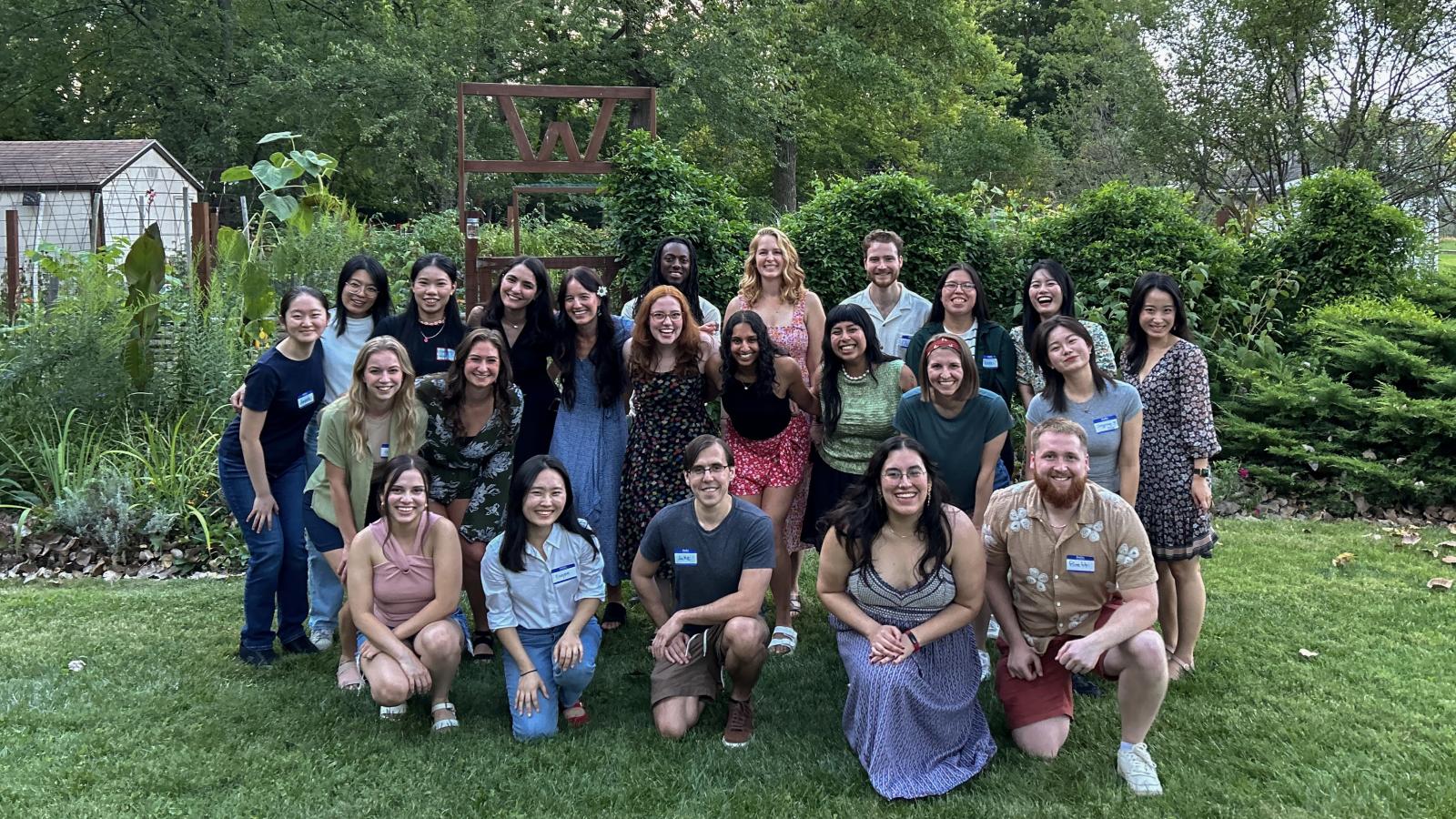Program Orientation
Ohio State offers one of the top training programs in Social Psychology internationally. The program is acclaimed for its contributions to the psychology of attitudes, persuasion, prejudice, attribution, automaticity and non-conscious processes, self and identity, groups and social cognition.
As a graduate student in this program, you are exposed in course work to the theoretical foundations of the discipline. You also acquire the expertise in research methodology that is necessary to advance the body of knowledge in social psychology.
Through formal and informal aspects of the program, you develop skills in conceptual analysis of social behavior and social problems, research design, data analysis, scholarly writing, teaching, editorial reviewing and oral communication.
You become involved in a research project conducted by a social psychology faculty member from the moment you begin study. As you develop your competence and experience, you will assume a larger role in concept development and project implementation. Eventually, you become a full collaborator.
As an advanced student, you are encouraged to participate in the research projects of several faculty members. Collaborative research with the faculty usually results in co-authored articles in books and journals and in presentations at professional meetings. Many graduates have made important research contributions to social psychology.
Your training will also include contact with social psychologists outside the University. Each year, internationally distinguished social psychologists visit our campus to present their research and meet with graduate students and faculty. This unique colloquium series exposes you to a range of social psychological research. It also provides you with intellectual stimulation and an understanding of the diversity of current developments in the field. In addition, you have the opportunity to interact with visiting faculty members and postdoctoral fellows. These scholars typically join the program for periods ranging from one academic quarter to two years.
Program of Study
In the first two years of the program, you are typically expected to enroll in three lecture or seminar courses and one laboratory course during each academic quarter. A normal course schedule includes seminars in both social psychological theory and methodology as well as a selection of more specialized courses. Special seminars are offered on topics such as affect and emotion, psychological perspectives on political behavior, automaticity, and intergroup relations.
You are expected to complete coursework in two minor areas. These may be either in other areas of psychology (e.g., cognitive, quantitative) or in another department of the University (e.g., Political Science).
After successfully completing the candidacy examination early in your third year, you are admitted to Ph.D. candidacy. The remainder of the year is spent in activities targeted toward your individual career objectives. Your options include specialized research and study at Ohio State or other universities. You are expected to spend an additional one to two years completing the Ph.D. dissertation.
Areas of Emphasis
In this program, you receive training in theoretically oriented, programmatic research in experimental social psychology. You receive broad exposure to the theories and methods of social psychology and you acquire expertise in one or more specialty areas such as affect, attitude change, attribution, social cognition, automaticity interpersonal processes, and intergroup relations.
You may also choose to specialize in the growing areas of applied social psychology. Should you select one of these areas, you will work closely with specific members of the core social psychology faculty as well as with affiliated faculty in cooperating departments. Interdisciplinary training is available in the areas of consumer psychology, health psychology and political psychology. In these areas, you will examine such issues as the psychological bases of consumer choices, the cognitive effects of depression and the determinants of voting behavior.
Facilities and Financial Support
You are provided with an office near faculty offices and laboratories. Laboratories include cubicles for data collection from individual subjects, larger rooms for data collection from groups, rooms with one way mirrors for observational coding and recording, and an assortment of state-of-the-art computer and audio/video equipment for data collection and stimulus presentation. You have access to computers for data analysis and word processing. In addition, the Thomas M. Ostrom Athenaeum contains journals, books, and computers for graduate student use.
Nearly all students in the program receive complete financial support throughout their graduate study. Support typically covers tuition and fees and includes a monthly stipend. Various sources of support are available, from fellowships to research assistantships and teaching associateships.
Core Faculty
- Riana M. Brown (Arriving Spring 2025)
- Russell H. Fazio
- Kentaro Fujita
- Kurt Gray (Arriving Autumn 2025)
- Lisa Libby
- Kristen Lindquist (Arriving Autumn 2025)
- Richard E. Petty
- Steven J Spencer
- Dylan Wagner
- Baldwin M. Way
- Duane T. Wegener
Emeritus Faculty- Retired- no longer accepting undergraduate or graduate students in the lab.
Affiliated Faculty
- Brad Bushman (Communication)
- David Ewoldsen (Communication)
- Curtis Haugtvedt (Marketing)
- Robert Lount (Management)
- Kathleen McGraw (Political Science)
- Thomas Nelson (Political Science)
Regional Campus Faculty
- Amy Brunell (Mansfield)
- Patrick Carroll (Lima)
- Philip Mazzocco (Mansfield)
- Bradley Okdie (Newark)
- Vanessa Sawicki (Marion)
- Jim Wirth (Newark)

